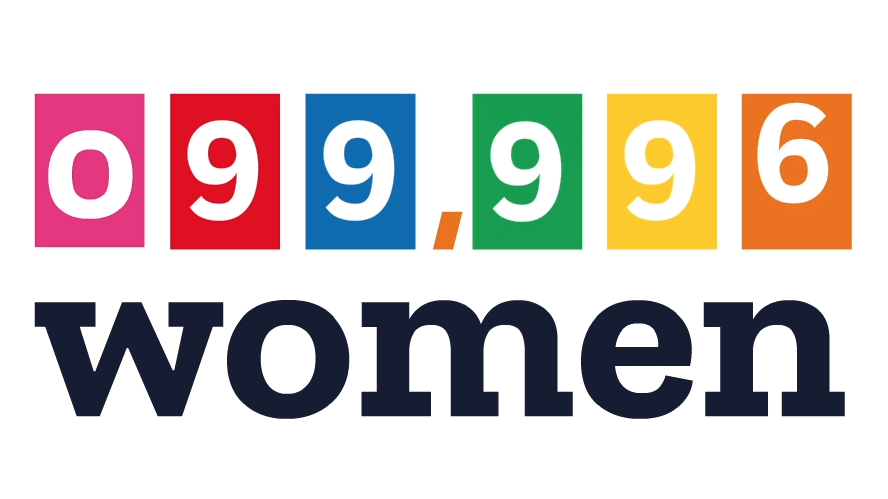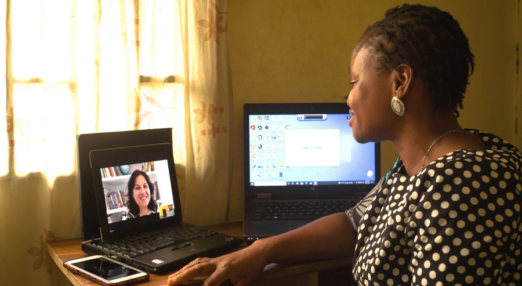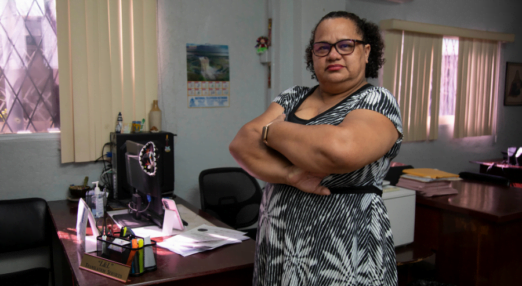2021: What’s the lay of the land for women’s entrepreneurship?
The Cherie Blair Foundation for Women’s Director of External Affairs, Sian Hawkins, shares her thoughts on the state of the world for women’s entrepreneurship in 2021, during this ongoing time of global crisis, change, rebuild and opportunity.

2020 marked the 25th anniversary of the Beijing Declaration and Platform for Action, (Beijing+25), which recognised women’s rights as human rights and set out the most comprehensive roadmap for action towards equality that the world has ever seen. But 2020 also saw the beginning of the single greatest crisis with the potential to rollback on so many hard-won gains for women around the world. Last year as we celebrated strides forward for women over the last quarter of a century, we also watched as many of the world’s women were forced out of the labour market, experienced increased domestic violence, and even more disproportionately shouldered the bulk of caregiving.
2021 is going to be a pivotal year for women entrepreneurs around the world, particularly those in middle and low income countries like them women the Foundation supports. Never has the world needed the power of aspirational, motivated and driven women with businesses that can take themselves, their families and their communities from surviving to thriving more than now, as we continue to battle the impact of COVID-19 across the globe. After supporting thousands of women entrepreneurs to navigate the pandemic in 2020, at the Cherie Blair Foundation for Women we are more committed than ever to support women entrepreneurs to fulfil their potential and unlock their ability to support more secure families, thriving communities and prosperous post-pandemic economies.
We can no longer afford to overlook the opportunity supporting women to reach their entrepreneurial potential offers. Women’s untapped contribution to the economy could help give economies the up-lift that they desperately need – our research with the Boston Consulting Group in 2019 showed that we could add up to $5 trillion to the global economy if we close the gender gap in entrepreneurship.
Our research with the Boston Consulting Group in 2019 showed that we could add up to $5 trillion to the global economy if we close the gender gap in entrepreneurship.
Despite this huge opportunity, last year we heard from the World Economic Forum that we are losing our race to achieve women’s economic empowerment–its 2020 Global Gender Gap Report estimates that closing the gender gap in economic participation and opportunity is now a staggering 257 years away, 55 years longer than in 2019. On top of this we know that women have been hugely disproportionately impacted by the current health crisis, with more women working in industries hardest hit by the pandemic, women making up the majority of frontline healthcare workers, and women taking on more domestic responsibilities. There can be no doubt that gender equality indicators around the world will have worsened through the pandemic and we are facing a race against time to put them back on course to meet the goals set out in the UN’s 2030 Agenda for the Sustainable Development.
At the Foundation, we will be working tirelessly through 2021 to provide tens of thousands more women entrepreneurs with the support, skills, training and networks that they need to start, sustain and grow businesses. But we can’t do this work alone: in order for women entrepreneurs to have an equal opportunity to become successful, there are some major obstacles that require urgent action from the global community.
We know that the most pressing barrier that women entrepreneurs face to becoming successful entrepreneurs is accessing finance and investment for their companies. Our Levelling the Playing Field research from 2019 found that more than half (52%) of women entrepreneurs applying to take part in our mentoring programmes in 2019 said that lack of access to finance was their greatest obstacle. This obstacle is no great surprise, especially given that women have only 77% of the access men have to financial services like credit cards, loans and bank accounts.
As well as facing huge hurdles like lack of access to finance – which are very clear and measurable indicators of discrimination against women – the women entrepreneurs we work with also have to deal daily with the consequences of pervasive gender stereotypes and harmful social norms. Nearly two thirds (62%) of women entrepreneurs that took part in our Levelling the Playing Field research reported having experienced some negative stereotypes about women entrepreneurs. We hear that women entrepreneurs are often perceived as ‘bad with money’ ‘too risk averse’ or ‘too self conscious’, whereas their male counterparts are considered ‘financially astute’, ‘risk takers’ and ‘confident’. Nearly four in ten women taking part in our research (38%) reported facing the stereotypes that ‘women are not assertive enough to be successful entrepreneurs’.
Breaking down such deeply embedded stereotypes will take considered action, time and collaboration with actors across the private, public and civil society sectors. This will be a key area of work for the Foundation over the coming year and we are looking forward to working with our allies – old and new – to challenge and change outdated stereotypes that are holding the women we work with back from success.
We’re directly supporting 100,000 more women to start & grow successful businesses
Women Entrepreneurs Mean Business will also launch the final year of our ambitious and impactful 100,000 Women Campaign, which is raising £10 million in order to directly support another 100,000 women entrepreneurs across 2020, 2021 and 2022. Join us on our mission today!
Partner with us Donate now Find out more about the campaign
Discover more blogs:
-

Get to know our CEO: a letter from Dhivya O’Connor
Two months into her role as CEO, Dhivya O'Connor shares her experience and what we can expect from the Foundation under her leadership.
Read more
-

In celebration of the power of mentoring
Efe Olokpa shares her insight on our Mentoring Women in Business programme.
Read more
-

Women-owned businesses power up Guyana’s economy
With partners, we recently convened a panel discussion led by key actors in Guyana’s women’s entrepreneurship ecosystem.
Read more
